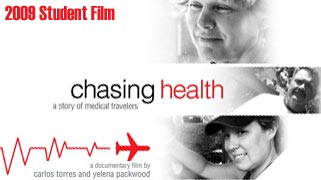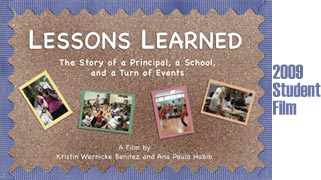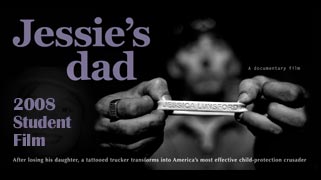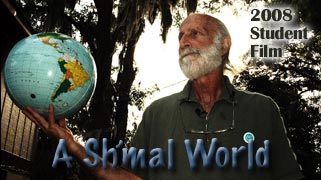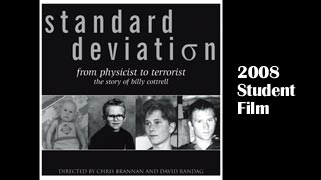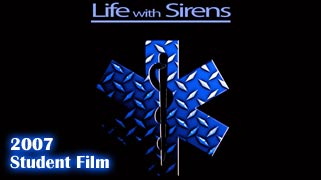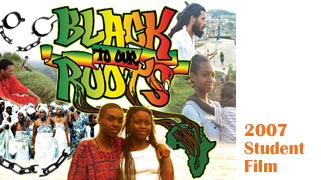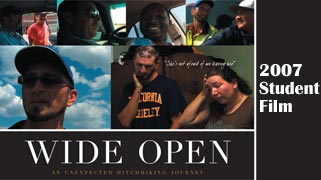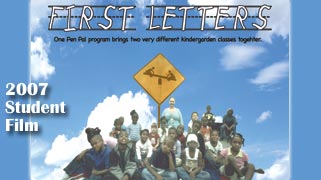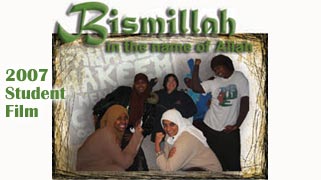Featured Alum: David Cassidy

DI Class: 2002
Thesis Film: One Small Step: The Story of the Space Chimps
Current Job: Producer, Cabin Creek Films
In January, Class of 2002 graduate David Cassidy visited the Institute while in town for his new project, the much-talked about Shut Up and Sing which was featured at the Hippodrome last month. David served as producer on the film, a feature-length documentary about the Dixie Chicks and the political controversy that exploded around them following their lead singers’ anti-war comment in London on the eve of the Iraq conflict. The documentary, directed by Barbara Kopple and Cecilia Peck, was recently short-listed for the Academy Award. David’s post-graduation internship at Cabin Creek Films, Kopple’s production house, turned into a full-time job. In just four years, he went from intern to producer, collaborating with Kopple on several film and television projects. While working at Cabin Creek, David also independently develops projects through his own company 78rpm Productions and is presently consulting on an animated feature film. He lives in New York City with his girlfriend and three cats.
David recently talked to Institute student Jolene Pinder about his experiences in the program and his most recent project.
Q: What do you feel was the most valuable thing you learned from working on your thesis film, One Small Step?
At the time, the most valuable thing I got from my work at the Institute and culminating in my thesis film had to be the discipline that it taught me and just the overall process of creating a film. Looking back on it, in hindsight, there are a couple errors in it and there are a couple things I would have done differently but I learned how to put together a film and I learned how to put together a good film and a film that was marketable and that I could sell. That film did so much for me. Opportunities just continually arise from it actually. It just surprises me when I get a letter every other week or a call every once in while from someone saying, “How do I get a copy of the film?” Still to this day, people are interested in that film. The overall education that I got at the Institute is one that I still refer back to. I think that it gave me the basis for what I have brought to my career. I think I know a little more now than I did then, but all in all, I was prepared to come out into the world as an Associate Producer after graduation and then work up from there. I think that anybody that takes the opportunity and the process seriously at the Institute should be similarly qualified as I was.
Q: How did you go about finding a job after graduation and how did the Institute prepare you for the film industry?
When I graduated, I said to myself I want to go and just take some time and intern and learn from someone who I hold in very high regard. I put together a short list of filmmakers I would want to work for and at the top of my list was Barbara Kopple. I said to myself I can take six months after graduation and go intern for anybody for free. At that time, I got an internship with Barbara and I came up to New York just thinking I was going to do an internship and find a job elsewhere. It turned out Cabin Creek Films was in transition. They had just finished a large project and they were starting a development phase. I always tell interns who come through here—development is really the place where somebody can get their first job. It all starts on paper. Once it’s already in production, it’s kind of hard to get those jobs. There was a project that came in that eventually became titled “Bearing Witness.” It was about female war correspondents working in Iraq. And as an intern, I took a very heavy hand in the research, writing and development of that project. Quite basically, I employed the skills and the education I got at the University of Florida’s Documentary Institute in what I was doing and in the process. Sure enough, that film got funded and I wound up getting hired on as the Associate Producer for that project because of the workload I took on as an unpaid intern. It just kind of went from there.
Q: What kind of advice would you give to someone who’s just starting out in the documentary film industry?
The advice that I give to people is that you have to have patience and you have to have less ego than you might want to have. When you leave the Doc Institute, you’ve just completed a film; you might be on the film circuit—you’re so qualified but you know what, people want you to prove yourself to them. It’s very few people who start at the top. It’s just hard for a lot of people I see to have to take a step backwards before they go forwards again. It was a difficult mental struggle for me to have to take on that internship that summer. It’s difficult to be an intern. It’s hard for you to say to yourself, “I’m going to take that run” or “I’m going to make that coffee.” Trust is not something that is a given and that’s a fact. It doesn’t matter who the filmmaker is or who the network is, they have to trust you and trust is something that you earn. That was something I had to earn from Barbara—her trust.

Q: What about the film Shut Up and Sing spoke to you? Why did you want to be involved?
Well, we’re storytellers when it comes down to it, and their story is an incredible one. I still read articles to this day about why the Dixie Chicks shouldn’t be upset and when I look at what happened to them and the reaction and the level and the organized backlash against them, it just doesn’t feel like the America that we’re all brought up to know and revere. When this film came in to the office, I was just jumping all over the opportunity to work on it because I wanted to tell this great and incredible story. The story only got more interesting from there, when we started filming with them, in my opinion. I think from a documentarian’s standpoint, their story is so indicative of a moment in time that hopefully, we’ll never have to suffer through again where free speech was not a given and the climate in this country was dangerous for those who were willing to express their political ideals. They suffered a backlash that I don’t think anybody else at that time, at least any public entertainers, suffered. No one else suffered like they did.
Q: What was the single-most exciting moment for you on this film?
It had to be seeing it in public for the first time. We premiered at the Toronto Film Festival and there were 1,800 people in the theatre. You know, you get in your head the moments that you think people are going to react to but you just never know until people are watching the film and you’re there. The reaction was stronger than I ever would have imagined it to be; it was so much more than I ever expected. I just left there feeling so good. You just never know until you get that first public reaction. It was just so validating. When you have 1800 people laughing at the same, cheering for something at the same time or gasping at the same time, you can’t put a value on that.

Q: What was the most challenging part of this project?
I think finding the right balance and having to let go. I think there’s something like 1400 tapes. It’s a 93-minute film in the end. You can do the math on that. Everybody had a few things they wanted to see in that film that had to come out of it…and that’s what DVD extras are for. You just to had to let go of certain things that you felt were really strong and you felt made the film more interesting in your mind. Seeing those things go was probably the most difficult part in my mind, but that’s just a necessity. Every film loses things that they don’t necessarily want to lose because it makes it a better narrative or just because you have to for time purposes.

